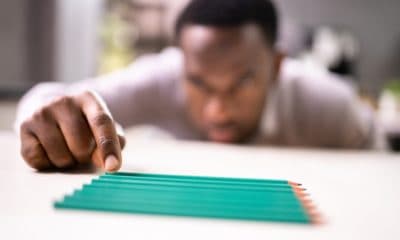How to Live a Truly Independent Lifestyle In This Chaotic World
These last few years have been some of the most chaotic of my life, making me question what living an independent lifestyle really means.
So many things changed!
Places that had been open all the time were suddenly closed.
All these restrictions were in place just to leave the house or enter establishments.
There were limits on the number of people we should see, how close we could stand, and even the places we could go.
This made some people angry because they felt the government had overreached.
While others agreed with the steps and considered it their contribution to the greater good.
Regardless of the camp you fell in, the truth is that we are a nation of people who celebrate and pride themselves on being free and independent.
We lost that back in March 2020 and are just getting it back.
It has made me question what living an independent lifestyle means.
And how can we do it when chaos strikes?
Because this is life, and something will always come along and complicate our journey for independence.
What does living an independent lifestyle really mean?
Are any of us truly independent in today’s society?
The answer is probably not (and I will explain why), but some things make us feel stronger and more independent than others.
Well, Being Central offers seven signs that prove you are an independent and strong person:
- You know how to prioritize: Recognize the most critical obstacles and tackle them first.
- You take pride in your work: You are motivated to do your best, make money, and support your lifestyle.
- You reap the benefits of your career success: You work hard and can support yourself with the essentials and buy your luxury items.
- Use your downtime to further your goals: This might mean making a business plan, gaining a new skill, or planning for the future.
- You know when to ask for help: You have pride but are still humble enough to know when you need help.
- You share your success with others: You are a giving individual who believes in paying it forward and helping others through mentoring or gifting.
- You are the go-to person: people know they can depend on you and are reliable. They trust you know what you are doing.
What criteria do you use to measure an independent lifestyle?
Each of these sounds like a great way to judge just how independent your lifestyle is if the parameter was career and material success.
However, is that the only criterion?
A person who lives in their dwelling, has nice things, or appears successful often depends on their employer or company continuing to pay them.
If the pandemic taught us anything, most jobs are not as stable as we envisioned them to be.
Any business could stop running in the right circumstances, and any position could be paused or eliminated.
Where do we turn, then?
Is it the government’s or society’s responsibility to ensure its citizens and fellow humans don’t get left behind?
That depends on how you view the world, and I am not here to try to convince you one way or the other is right.
However, I propose that none of us is as independent as we think we are because the definition most use is problematic.
You Might Also Like: How to Teach Your Kids to Be More Independent
The problems with our perceived independence
Sure, being super ‘successful,’ or even just not living at home and paying your bills, could be described as independent.
I think for most of us, that’s the goal.
However, when we feel our independence slipping away, how do we reconcile who we are with what we want?
For instance, you work but still live with your parents.
You help contribute to the household’s financial needs.
You also get to spend time with your parents, and maybe you are helping them keep their independence.
Everyone is happy, and you have some extra money to enjoy life.
Are you less independent than someone else?
Or maybe you own a condo in the city and have a high-paying job.
You check off many boxes that indicate you are an “independent person,” but what happens if something happens to your job?
You probably have savings, investments, and even skills someone else will pay you for.
Yet, you depend on your job, paying your check, and funding your existence.
Maybe you think the entrepreneur is the most independent because he depends on himself to sustain his workflow.
He dictates how much money he makes by the amount of work he does or the clients he sees.
However, what happens to him if the power grid supports his ability to work breaks for weeks?
He might live a life that someone who shows up to work M-F 9-5 envies, but he still depends on something, even if it’s as simple as his clients continuing to require his services.
The person living in a hut in the woods, using solar power, a catchment system, and hunting rabbits for food might be the most independent of us all.
Yet, few of us want to live that lifestyle
Aside from your independence, there are the social dependency constraints we all live under.
We are legally required to have car insurance because we might damage someone else’s property and cannot pay for the damage.
Does that mean you should be allowed to opt-out if you prove you had x amount of money in the bank to reimburse someone?
Or does it mean that only people with that money should drive because we wouldn’t depend on insurance to cover us?
Are we being independent, paying our taxes, and expecting the government to fix things like roads?
Or should we all just fix our paths from A to B with our own money?
How independent do you want to be?
This argument reminds me of when my teenager, who is on the cusp of adulthood, says she can’t wait to grow up.
Sure, ‘freedom’ sounds fun.
But I will not be there to send you money for lunch, or to buy a new pair of shorts, because you don’t want to dip into your summer trip fund.
A luxury to her depending on me allows her a different kind of freedom: the freedom to not worry about her survival.
And in each of these scenarios about how we view independence, there is some outside chaotic force we must guard against.
What if true independence and freedom don’t come from how successful we are, the things we have, or even our level of dependence on others?
What if the secret to maintaining independence when life throws us a curveball comes from within?
A new way to look at freedom
People want to proclaim their freedom and independence at every chance they get.
Whether by lighting fireworks on the 4th of July, enjoying their material successes, or even in a Facebook argument with someone of a different political viewpoint.
I think independence is about much more than any of those things.
Independence is exercising the freedom to keep an open mind.
It can let go of beliefs that no longer serve you and embrace a new truth when one presents itself.
Genuine independence comes from our ability to free ourselves, not from the shackles of governments and mask mandates, but from the trauma responses our behavior hinges on.
My therapist pointed out once that I lived with childhood trauma for so many years and from such an early age that I had “no idea who I would be if those things hadn’t happened.”
I realized then that despite all the progress, success, and ‘normalcy’ I had achieved, I was not free of the effects of trauma.
When someone lives their truth or states an opinion that differs from yours, do you know why it scares you?
Do you know what is causing you to fight and defend your position?
Is it a freedom issue, or are you so enslaved by your beliefs and perceptions that you can’t acknowledge someone else’s?
It doesn’t matter what those beliefs might be.
How independent are you if you are clinging to them so tightly that you are cutting off the circulation in your hand?
Independence is an elusive goal that we journey toward every day
The world’s chaos is inevitable!
The best ways to stay truly free are to keep an open mind, take care of yourself, and be the person you need someone else to be for you.
Therapy can help you learn new behaviors that will make it easier to do these things.
Meditating and self-care are excellent ways to keep yourself healthy.
Take care of yourself, be open to learning and growing, accept change, and develop resiliency.
Chaos is everywhere.
However, you have everything you need to live an independent lifestyle, despite whatever the world throws at you.
“Every human has four endowments – self-awareness, conscience, independent will, and creative imagination.
These give us the ultimate human freedom… The power to choose, to respond, to change.” ― Stephen Covey











